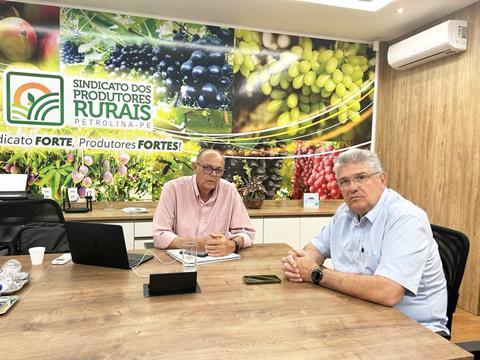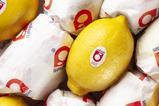Industry leaders reject government suggestions to pivot to Asian markets, and warn that redirecting shipments to Europe would depress market prices

With Brazil’s mango and grape harvests just days away, the introduction of a 50 per cent US import tariff at the beginning of August raises the prospect that fruit could be diverted to other countries in Europe or Asia – something which could have a profound impact on market prices.
Producers in the region around Petrolina, in Brazil, have apparently dismissed a government suggestion that they divert their exports to Japan, South Korea, and China, as they explore possible solutions to a potentially highly damaging 50 per cent US import tariff, which is scheduled to start on 1 August.
Speaking at a meeting on Monday 14 July, the presidents of fresh produce export association Abrafrutas, Guilherme Coelho, and the Union of Rural Producers of Petrolina, Jailson Lira, said they would ask the government push for a six-month postponement of the import tax.
As reported by Dinheiro Rural, they also discussed the possibility of requesting a tariff-free quota for mangoes and grapes, corresponding to this year’s harvest.
Regional agribusiness leaders have reportedly expressed “great concern” about the possibility of losses to fruit production, Abrafrutas said in a statement.
Last season, it said, the Brazilian region shipped 36,800 tonnes of mangoes and 13,300 tonnes of grapes to the US, generating export revenue of US$45.8mn and US$41.5mn respectively.
This year’s harvests in Vale do São Francisco, north-east Brazil, get underway in the last week of July and the first week of August.
And typically, around 2,500 containers of fruit would usually be shipped abroad, Coelho said in an Instagram post, adding that the 50 per cent duty would effectively render that business ”unviable”.
“Producers and exporters have already organised themselves with regard to materials, shipping space, and commitments with supermarkets and distributors abroad,” he told the news outlet.
“A sanction like this makes shipping to the United States unfeasible, and the fruit, as it is perishable, needs to be sold,” Jira added. “Sending this fruit to Europe will depress the market there and will also lead to losses. If it remains in the domestic market, it will be the same.”
The presidents said they disagreed with an idea presented by the Brazilian Ministry of Agriculture, which suggested working with the Japanese and South Korean markets for mangoes, and the Chinese market for grapes.
“The South Korean market represents only 1.22 per cent of the size of the American market for us, and China is a market we’re just getting to know,” they explained. “It doesn’t have specific logistics and isn’t yet accessible to us. Therefore, we’re very skeptical about these two possibilities.”
The leaders called for further dialogue to resolve the impasse. “We need to talk about the values at stake, the investments producers have made so far practically on the eve of harvest, and the region’s employment, which is also under threat,” they concluded.








